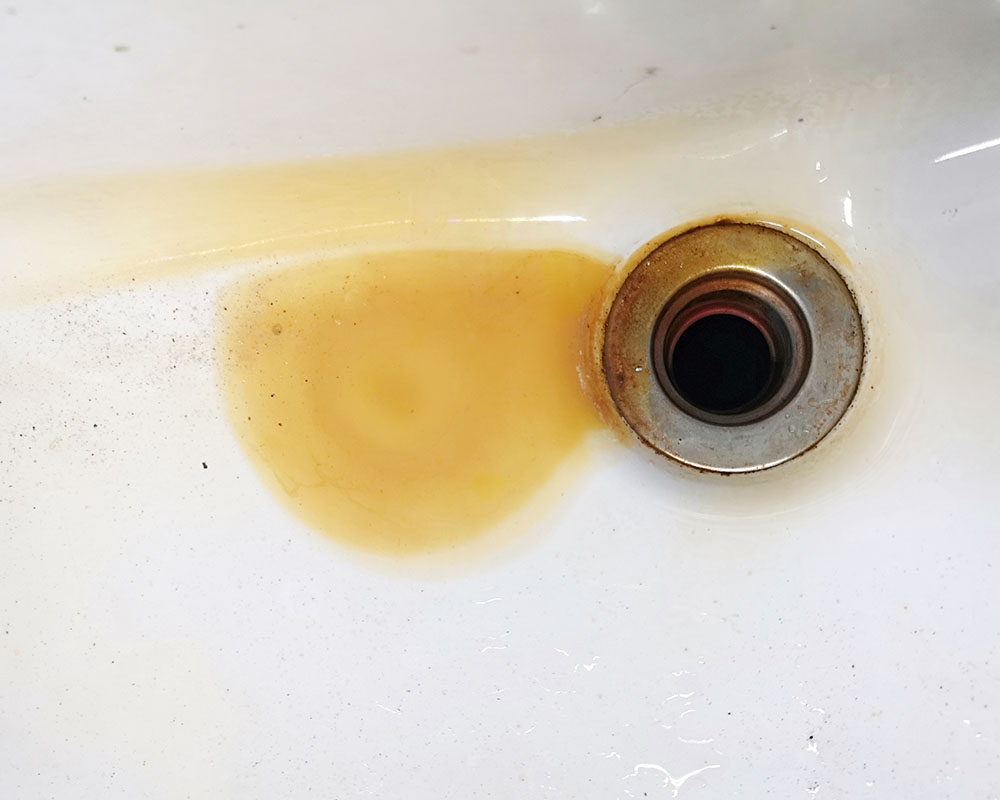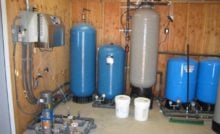Podcast Q & A 2: “Can I use a softener to remove iron? I know I have iron problem because we get stains on our fixtures and tub”.


Podcast: Play in new window | Download
Subscribe: RSS


My name is Gerry Bulfin and I am a WQA-Certified Master Water Specialist and Water Treatment Contractor here in Santa Cruz, California and every week we get lots of questions and try to pick up the best one and answer one.
So here’s one from David and David asks:
“Can I use a softener to remove iron? I know I have an iron problem because we get stains on our fixtures and tub. Right now I have nothing, but my father said he will buy us a water softener.
I don't really think we have a problem with hard water but he says that will take our iron out, too. What do you think? I was thinking about getting a whole house water filter from Home Depot, but I don’t like the idea of having to change the filter”
Very good question, David. Okay, here’s what it is. So, basically your father could be right, it might work, but it really depends on a few factors.
First, you need to have your water tested. You can get a do-it-yourself test kit for this type of thing, or you can send it into a lab and have it analyzed. But essentially, you want to know how much iron is in the water.
If it’s a low level of iron, water softeners do better than high levels. So, for instance, 1 part per million, less than 1 part per million, 0.3 parts per million is the standard. If you have more than that, you will get stains. So, somewhere in low range of iron, the water softener works better. The other thing you want to test for is pH. How acidic or alkaline.
If your water has a high pH say, well over 7, 7.5, 8, then, the softener won't work as well because the higher the pH, the more likely the iron is going to turn into rust. It’s not going to be a clear ferrous iron. And you can check this too with a white 5 gallon of bucket. Just fill that up with water right from the well and if your water is crystal clear, then the softener is more likely to work better and be less trouble than if it’s rustry or discolored.
Is there any odor in the water? You didn’t mention odor but if there is an odor, generally, the softener will becomes fouled. And then you want to know how hard the water is because if your water isn’t hard to begin with, maybe you don’t want a softener for iron removal because then you have to deal with the salt. So, basically, water softeners work by ion exchange, which means they have resin beads inside that pull ions out such as calcium, magnesium and iron, and then substitute sodium in its place.
So, what can happen is if there’s significant iron in the water, and especially ferric iron or has chance to turn the ferric iron inside the water softener, is that it can soak into the resin beads and that can cause fouling. Then it doesn’t work well and sometimes the water can actually come out worse out of the water softener. Although you can clean that softener resin with different types of rust removing salt and chemicals, but it’s a pain to deal with and it’s more expensive.
So, it really boils down to is that if your water is neutral, pH 7 or slightly acidic, and you want soft water and you don’t have a lot of iron, you could use a water softener. But for the most part, you're better off using the backwashing iron filter. Iron filters have specific media inside that takes up the iron and then it backwashes once or twice a week. Say, for instance, middle of the night and it just cleans all that rust out.
A lot of the iron filters don’t use any kind of chemical, they definitely don’t use salt so it’s just a lot less trouble to deal with.
The other thing is that you talked about getting the whole house filter if you have rusty water where you have mostly ferric iron which would be unusual if you have a normal, deep, well-constructed well. If you have a shallow well, or you have iron bacteria, you might have more rusty water but anyway, you can get a cartridge filter, might help a little but if you think about it, the water is coming out of the ground and had iron in it but the water is clear. So that means it’s dissolved in the water.
It’s just going to pass through most filter cartridges. Eventually, the cartridge can get iron bacteria growing on it or slime and it can cause pressure loss, pressure drop. So, it’s just one more thing you got to mess around with. Generally, cartridge alone won’t do the trick. Water softener isn’t the best for iron but it will work under those conditions that I just mentioned.
Low-level iron and pH that is neutral or even a little acidic, if your water is very acidic like say 6 or less than 6 or even 6.5, I would hesitate to put water softener in as well. It’s too acidic because rig softening the water normally, will not make your water corrosive. If you remove the last bit of hardness in already very acidic water then you can make your water more corrosive. So, it’s not a good idea to use a water softener in those conditions as well.
Hey, I hope that answered your question and if anyone else has questions, please go to our blog cleanwaterstore.com/blog and you’ll see on the side on the right, a blue button and just click on there and you can record, send us a voicemail right from your mobile phone or computer, if you have mic. Or the old fashion way, just call us up or send us an email and we’ll get back to you. Phone number is 888-600-5426 or you can email us at info at cleanwaterstore.com
Thanks for listening.
Recent Posts
U.S. Water Problems by Region: Common Contaminants & Solutions
Curious about U.S. water problems by region? Water quality isn’t just a national issue—it’s a…
Wildfire Water Contamination: How to Ensure Safe Water After a Fire
Wildfire Water Contamination: What You Need to Know After the Fires Wildfire water contamination poses…
Clean Water For Pickles: The Secret Ingredient
Using clean water for pickles is not just a best practice—it’s crucial for achieving great…
How to Test and Remove Manganese in Well Water: A Complete Guide
If you rely on a well for your home’s water supply, you might have encountered…
Effects of Chlorine and Hard Water on Skin: Top Skin Problems and Solutions
Effects of Chlorine and Hard Water on Skin: Top Skin Problems and Solutions Have you…
How Whole House Water Filters Keep Your Family Safe: A Mom’s Guide
When creating a safe and healthy environment at home, clean water is essential—especially for moms…

